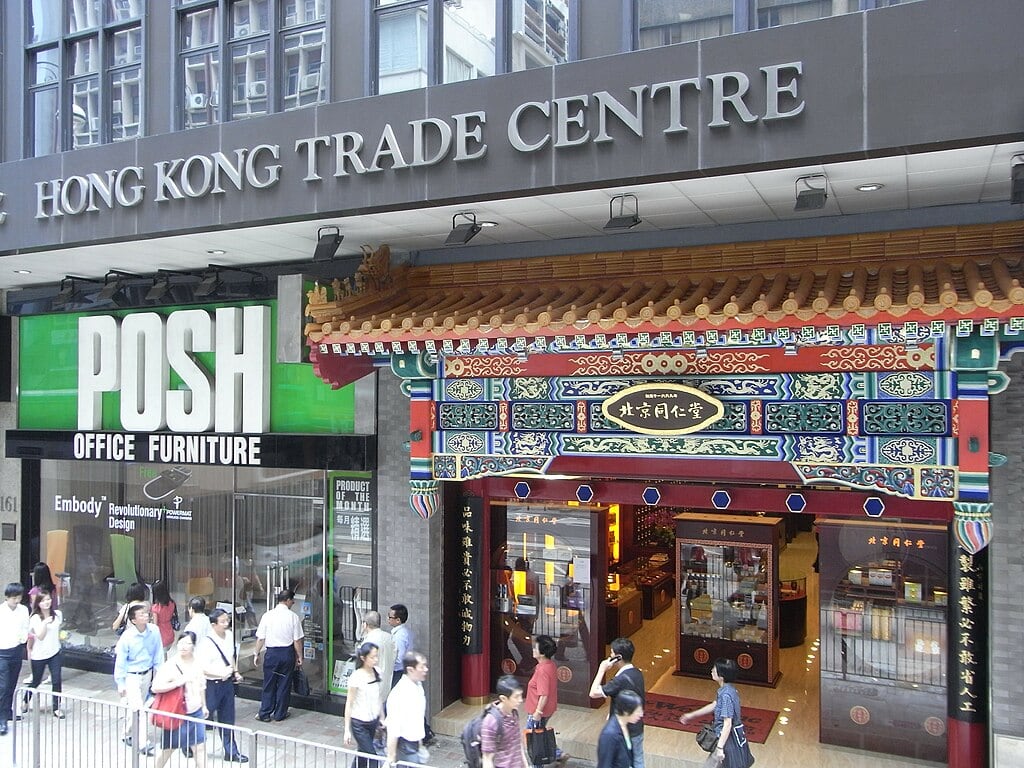
For Blockchain to Succeed It Needs to Be Invisible, Experts Agree
by Fintech News Hong Kong April 18, 2019This is not new rhetoric: most of us only ever heard of blockchain when cryptocurrency hit critical mass, particularly during the infamous Bitcoin bull of 2017.
The same idea was expressed during the Internet Economic Summit 2019, a two-day event held earlier this week at the Hong Kong Convention and Exhibition Center (HKCEC).
One of the topics discussed during the fintech forum was “The Future of Trade Finance — Smart Contract with Blockchain”, that called in blockchain advocates from differing blockchain backgrounds to offer their thoughts.
One of the panelists, Steven Lee of Hong Kong’s trustMe blockchain provider, opines that Hong Kong still has much to do in order to truly allow for the advancement of blockchain in the region. Of course, blockchain is just in its beginning stages so this is all to be expected.
Describing one of the services trustMe provides, a real estate based-blockchain called the TPX, Steven argues that what they do is perfectly within legal grounds, and yet due to a popular misunderstanding of the offering, they face some difficulties convincing potential users of the benefits.

“Although [the government] does support us, sometimes the law is not really up to date,” said Steven.
“We have a lot of hindrances from government authorities who always challenge things and always send discouraging information to the public: like the real estate agents that [are often told to] be careful. We are trying to push something for the smart city, but we keep hearing all the discouragements from the authorities. But it’s getting better.”
When coupled with the fact that the general Hong Kong public doesn’t understand blockchain, the constant assertion to “be careful” by the government, it seems, has led to the population steering clear of blockchain altogether out of fear.
Blockchain, the Stigmatised Ledger
The fear derives from the volatility of cryptocurrency, the nascent nature of blockchain and the association with ponzi schemes drives the general public to mistrust blockchain, but ironically it is a sense of trust that blockchain hopes to achieve.
As moderator Bien Perez of South China Morning Post said:

“Blockchain has been adopted to other industries, one of which is trade [finance]. The truth of the matter is for the longest time, trade finance has been full of inefficiencies, and the industry has been extremely vulnerable to fraud. Well, winter is coming to inefficiencies and fraud.”
Matt Baker, Head of SME Solutions in Asia Pacific for Visa said:
“Trade finance, to my understanding, has been around for about 5 thousand years and in that time it’s obviously evolved, but hasn’t necessarily evolved as quickly as we’d like. It’s mainly a problem because there’s an inherent lack of trust between the buyer and the supplier.”
This lack of trust brings banks into the picture as intermediaries, but bank involvement leads to reams of documents for reconciliation purposes. Unfortunately, these data are often held in silos, which necessitates approximately 4 billion documents worldwide supporting trade transactions.
Reconciling this database then becomes a challenge, which leads to the lack of efficiency we see today.
Blockchain’s role here is obvious, offering a decentralised immutable ledger usable by all parties for both posting documents and reconciliation.
“What it automatically does is because it’s immutable and refrangible by all parties, it’ll be able to speed up transactions and reduce costs for the banks. It’s an inherent use case for the banks and those parties.”
Meanwhile, Dr Paul Sin, partner at Deloitte China provides a banker’s perspective:

“People often ask why we use blockchain when we can use Open API to connect SMEs with banks.”
” Let’s say if I’m a manufacturer in China, and I have a lot of orders from the USA. [If] I take those [orders] to the bank logically I could obtain financing, produce the goods and then get payment, return to the bank with interest. That should be very logical. The challenge is that the bank does not believe that the buyer exists in the USA.”
Top off the concern for forged or tampered documents by SMEs, like the China manufacturer, or even if the document is already used as collateral by another bank.
Due to cybersecurity laws, Paul posits that API cannot solve these issues.
“So blockchain provides a secure platform where people can exchange this information without breaching data privacy. And in my opinion, this is the most important use case in blockchain and that serves trade and trade finance particularly well.”
How would one convince a skeptical populace about a genuinely useful piece of code then?
Keep Mum about Blockchain Then

Image Credit: Internet Economy Summit
Banks these days often shout loud and proud about exploring blockchain in their annual reports, but Paul Sin opines that:
“Blockchain is really just the solution. Not all the parties within that process really need to know about the solution. They just need to know that it’s solving their problem. [It could be] be anything. As long as it’s speeding up transactions, and reducing their costs; it doesn’t matter.”
trustMe’s Steven Lee could corroborate. He tells the story of the same property blockchain he brought up, which was left in limbo by the authorities for half a year.
When Steven finally made his way over to check on its status, which is when the chairman finally asked: “what is blockchain, actually?”
“So I said forget about blockchain. [This is] what we can do to resolve your pain point. And then they said that [when presenting to the] voting committees, don’t tell them about blockchain; they won’t understand. Just tell them how to resolve their problem.”
Adoption is Key to Blockchain’s Success

Image Credit: Wikimedia Commons
Deloitte’s Paul Sin said that:
“You can’t build a trade platform just in Hong Kong. Even our financial secretary also said they’re reaching out to overseas platforms trying to create interoperability.”
Here, Paul refers to the HKMA’s joint effort with Deloitte and trade finance banks in Hong Kong to develop a distributed ledger Technology (DLT) proof of concept for trade finance.
After all, if information exchange is impossible then the network is useless.
“As long as you don’t commercialise that blockchain itself, you have a higher chance at getting adoption. Interoperability is a technical problem which can be easily solved with a technician but the adoption needs to have a viable commercial model which usually happens at the app level, not the data level.”
Matt Baker adds that “there is talk that we’re looking at the age of super-connectors between these networks so that may well be something that may need to happen in the same way as super apps in the mobile world. We may well be seeing the rise of the super-connectors that are able to take all of these particular trade platforms and connect them.”
Featured image via Internet Economy Summit 2019








